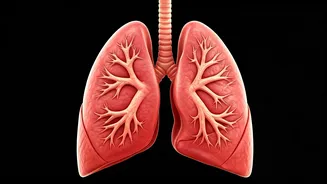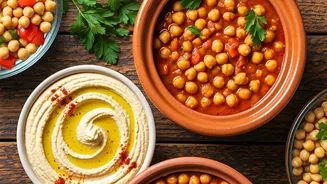Food & Lung Health
Our lungs, crucial for delivering oxygen during sports, are surprisingly vulnerable to dietary choices. Certain foods can trigger inflammation, mucus production,
and airway constriction, making breathing more difficult. This isn't just about avoiding a stuffy nose; it's about optimizing lung function for peak performance. Choosing the right foods can improve lung capacity and ease breathing, leading to better endurance and overall fitness. For athletes, understanding this connection is vital, as it directly impacts performance on the field. The goal is to identify and minimize the impact of foods that impair lung function, allowing for greater athletic potential. Let's delve into specific foods that can negatively affect lung health, and explore alternatives to support respiratory well-being.
Dairy's Impact
Dairy products, though a dietary staple for many, can be problematic for respiratory health. Milk, cheese, and yogurt contain a protein called casein, which some individuals may find difficult to digest. This can lead to increased mucus production, thickening the airways, and making breathing more labored. While not everyone is affected equally, the potential for dairy to exacerbate respiratory conditions makes it a key consideration for those aiming for optimal lung function. Avoiding or limiting dairy can reduce inflammation and improve breathing. Alternatives such as almond milk, soy milk, or oat milk can be used to meet the body's calcium needs without compromising lung health. Therefore, athletes should consider monitoring their dairy intake and evaluating its impact on their respiratory performance.
Salty Sensitivities
Excessive sodium intake, frequently found in processed foods and fast food, can cause fluid retention and inflammation throughout the body, including the lungs. This can constrict airways, creating a feeling of heaviness or tightness in the chest. Increased salt consumption may also worsen pre-existing conditions like asthma. Cutting back on sodium-rich foods is a simple yet impactful step towards healthier lungs. Reading food labels and being mindful of portion sizes can help reduce sodium intake. Emphasize fresh, whole foods that naturally contain less sodium. Seasoning with herbs and spices instead of salt will provide flavor without the harmful effects of excess sodium, supporting improved respiratory function, especially for athletes who require optimal oxygen intake.
Sugary Sweetness & Lungs
High-sugar foods, prevalent in processed snacks, sodas, and baked goods, can trigger inflammation in the body. This inflammation can affect the airways, resulting in mucus production and making breathing more difficult. Also, high sugar levels can weaken the immune system, making it harder for the body to fight off respiratory infections. Athletes looking to maintain optimal lung function should limit their consumption of added sugars. Focus on consuming whole, unprocessed foods with naturally occurring sugars from fruits, and reduce intake of refined sugars and sugary drinks. This small change in diet can make a substantial difference in reducing airway inflammation and supporting healthy lung function, contributing to better athletic performance and overall well-being.
Fried Foods' Effects
Fried foods, often cooked in unhealthy oils, can be particularly detrimental to lung health. The high-fat content and the chemical changes that occur during the frying process lead to inflammation and can irritate the airways. This can result in increased mucus production and a greater difficulty in breathing, potentially worsening asthma and other respiratory problems. Athletes may find that consuming fried foods reduces their endurance and affects their performance. Opting for baked, grilled, or steamed alternatives can help avoid these negative effects. Making healthier choices around cooking methods, along with an understanding of food impact, can lead to reduced inflammation, improved respiratory function, and better overall health, supporting an active lifestyle.
Processed Meats Hazards
Processed meats, such as sausages, bacon, and deli meats, often contain nitrates and nitrites that can trigger airway inflammation and even oxidative stress in the lungs. These preservatives are used to enhance color and preserve the food, but they can negatively affect respiratory health. They can contribute to the constriction of airways and create more difficulty breathing. Athletes who want to maintain optimal respiratory function should reduce their intake of processed meats and look for healthier protein sources. They can substitute with lean meats, poultry, fish, or plant-based proteins. Understanding how food choices impact our lungs ensures athletes can make informed decisions to optimize their performance and well-being. Prioritizing fresh, unprocessed foods is a key strategy for maintaining healthy lungs.
Artificial Additives Issues
Many processed foods contain artificial additives, such as food colorings, flavorings, and preservatives, which can cause allergic reactions and inflammation in some individuals. These reactions can manifest in the airways, causing symptoms like wheezing, coughing, and shortness of breath. Those with existing respiratory conditions, such as asthma, are particularly vulnerable. To support lung health, it's beneficial to be vigilant about food labels and minimize the intake of products containing these additives. Focus on whole, unprocessed foods and prepare meals from scratch when possible, which helps to avoid artificial additives. This helps in managing and reducing respiratory symptoms. Consciously choosing fresh ingredients and limiting exposure to artificial additives is vital for better respiratory health and overall well-being, especially for those involved in sports.





















